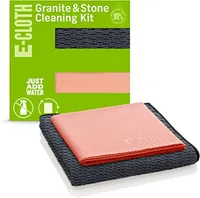Are granite countertops right for your kitchen? We examine the pros and cons
We take a deep dive into granite countertops to see if they are the right choice for your kitchen

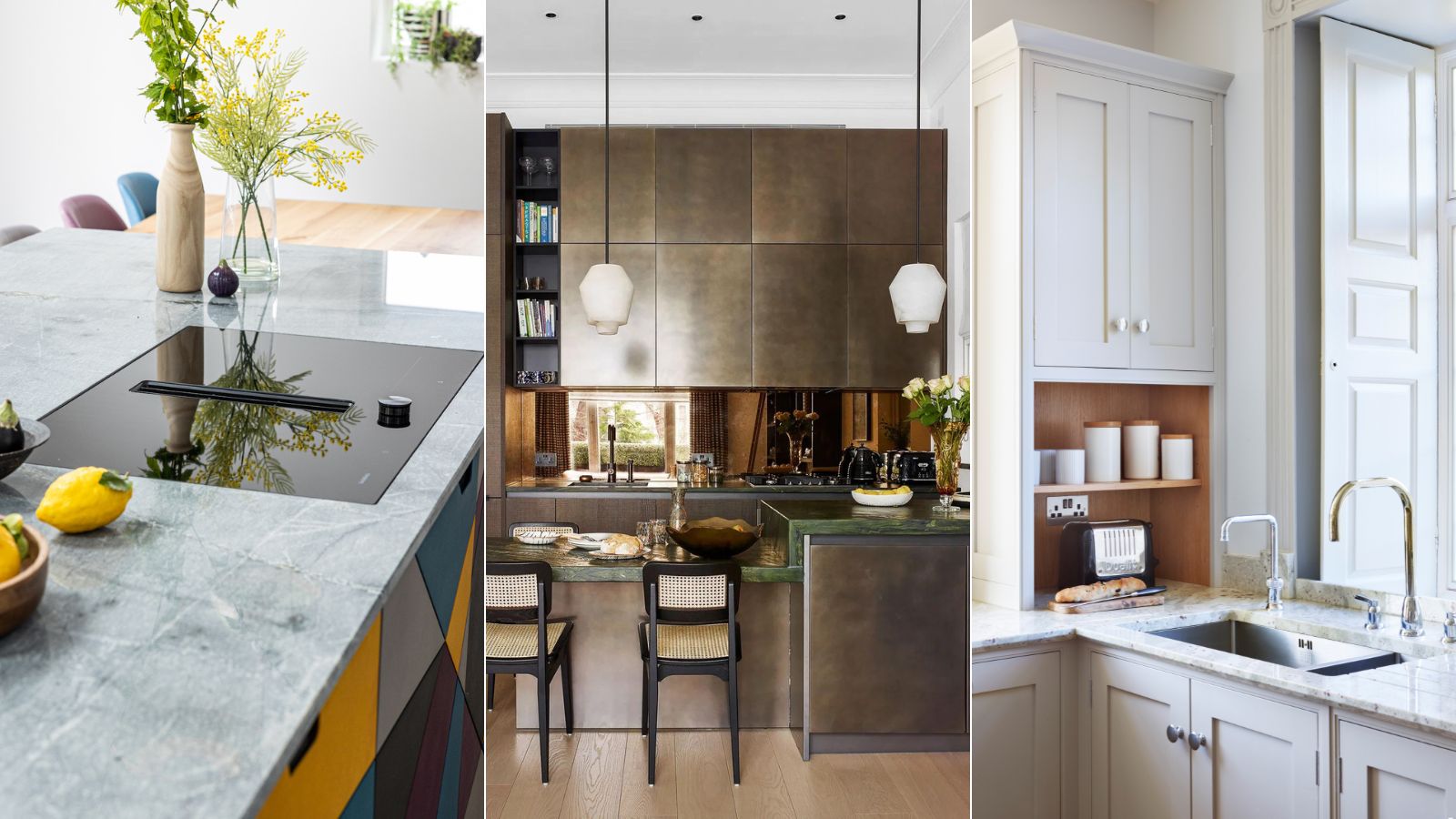
Design expertise in your inbox – from inspiring decorating ideas and beautiful celebrity homes to practical gardening advice and shopping round-ups.
You are now subscribed
Your newsletter sign-up was successful
Want to add more newsletters?

Twice a week
Homes&Gardens
The ultimate interior design resource from the world's leading experts - discover inspiring decorating ideas, color scheming know-how, garden inspiration and shopping expertise.

Once a week
In The Loop from Next In Design
Members of the Next in Design Circle will receive In the Loop, our weekly email filled with trade news, names to know and spotlight moments. Together we’re building a brighter design future.

Twice a week
Cucina
Whether you’re passionate about hosting exquisite dinners, experimenting with culinary trends, or perfecting your kitchen's design with timeless elegance and innovative functionality, this newsletter is here to inspire
Coveted for their one-of-a-kind beauty, granite countertops have long been a favored choice for homeowners looking to elevate their kitchen design with natural stone. This extremely robust material is prized for its unique patterns and tactile finishes, with each slab telling a story millions of years in the making.
But when choosing the right kitchen countertops for your home, how does granite stack up against other popular materials, such as marble or quartz?
Whether you're in the midst of a home renovation or simply giving your kitchen a much-needed refresh, this guide aims to help you decide if granite countertops are right for your space and lifestyle.
Are granite countertops right for your kitchen?
'Granite has been one of the most popular materials for worktops for decades,' explains Paul Dore, Managing Director at County Stone. 'This popularity no doubt stems from the range of colors available – which suit many different styles of kitchen and bathroom – as well as its impressive durability'.
But how can you decide if granite countertops are right for your kitchen? From aesthetics to installation, we examine the pros and cons below:
What is granite?

Brands such as Cullifords in the UK offer a range of unique and exquisite granite slabs.
Granite is a natural stone formed from cooled lava, featuring a tapestry of speckled patterns and colors that range from subtle beiges to deep blacks. Unlike engineered stones, granite's allure lies in its natural composition, primarily quartz, mica, and feldspar.
Each quarry produces granite with its own distinctive characteristics, ensuring no two granite countertops will look exactly alike. The journey from quarry to kitchen involves cutting the stone into manageable slabs, polishing it to a gleaming finish, and shaping it to fit the precise measurements of your kitchen.
Design expertise in your inbox – from inspiring decorating ideas and beautiful celebrity homes to practical gardening advice and shopping round-ups.
Aesthetic Considerations
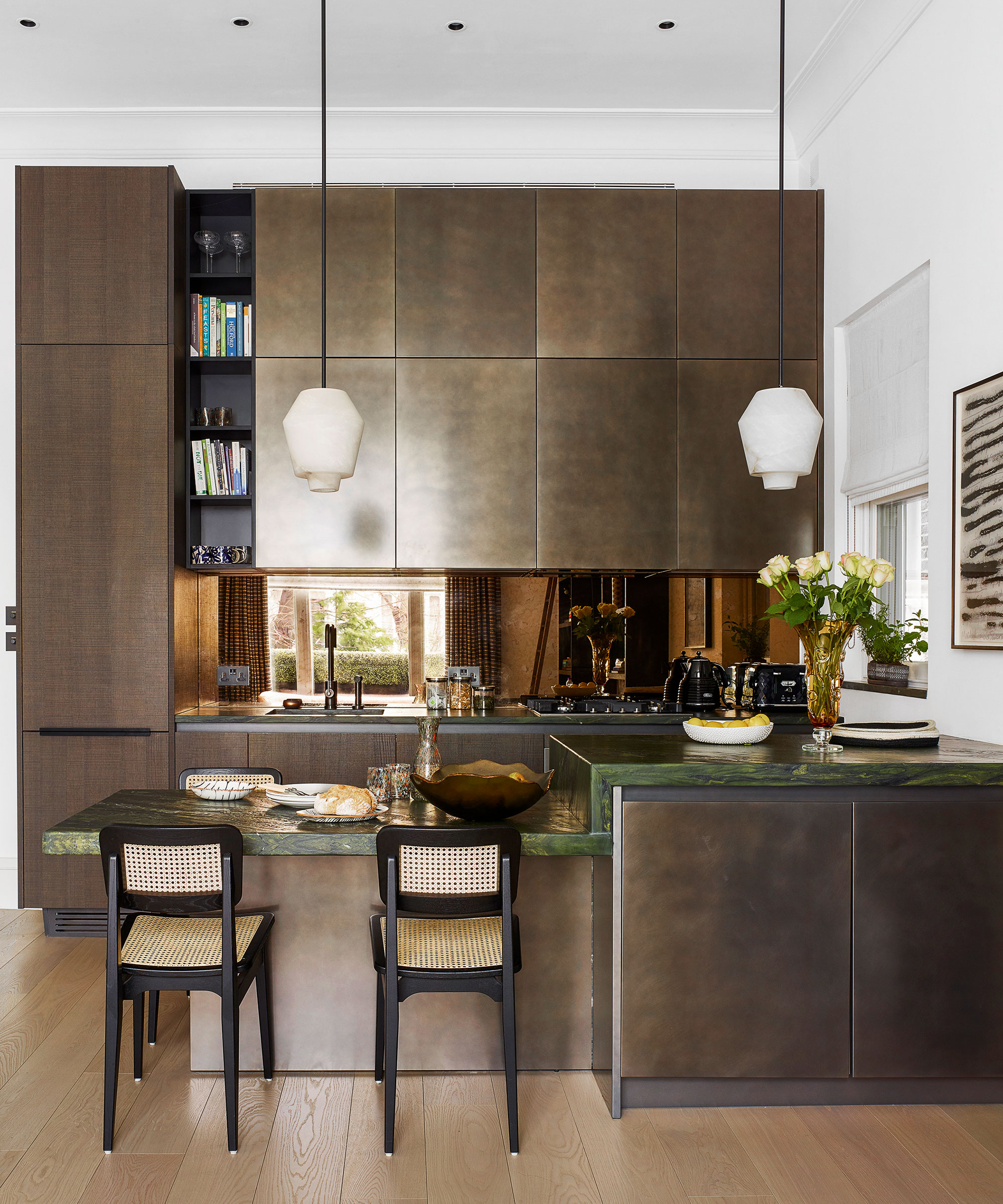
'Granite countertops are available in a huge range of colors and variations. But unlike more affordable worktop materials – such as laminate – granite slabs are designed to remain in place for many years, meaning you’ll want to choose a style that will go with different colors and designs should you choose to redecorate,' says Paul Dore from County Stone. 'We see many customers who simply replace their kitchen cabinet doors and keep the worktops, to cut down on costs.'
'Another thing to consider is what thickness you want your kitchen countertops to be. Unlike most other worktops, stone comes in ¾ inch and 1 ¼ inch thickness. 1 ¼ inch has been the most popular, historically, and suits the traditional style cabinetry but some people prefer a more delicate look which tends to suit the more modern style kitchens and so opt for ¾ inch stone.'
Installing Granite Countertops
Installing granite countertops is a job best left to professionals, as it requires specialized tools and skills to precisely cut, polish, and place these stone surfaces. Granite's heavy weight also means it requires a sturdy cabinet base to support it, so if you’re installing these countertops as part of a kitchen remodel, it would be a good time to check the load-bearing capacity of your kitchen cabinets and consider upgrading those as well.
'Before installing granite countertops, you may also want to consider the initial cost,' adds interior designer, Nina Lichtenstein. 'These countertops tend to be much more expensive than alternatives like laminate.'
Costs
'Granite can be more costly than other countertops,' explains Jamie Mitri, an environmental engineer and Founder of Moss Pure. 'But they are durable and will last much longer than other materials, making them a worthwhile investment'.
On the lower end of the scale, you can expect to pay anywhere from $40-60 per square foot for granite countertops (including installation). However, lower-quality granite is often much more limited in terms of pattern and coloration.
Mid-range granite typically costs $60-80 per square foot and will offer a wider variety of patterns and styles to choose from.
Premium granite countertops usually feature rare colors and patternation – not dissimilar to semi-precious stone like labradorite – and will roughly cost between $100-200 per square foot.
These estimates factor in the cost of the slab, fabrication (cutting, sealing and edging), and installation.
Durability & Longevity
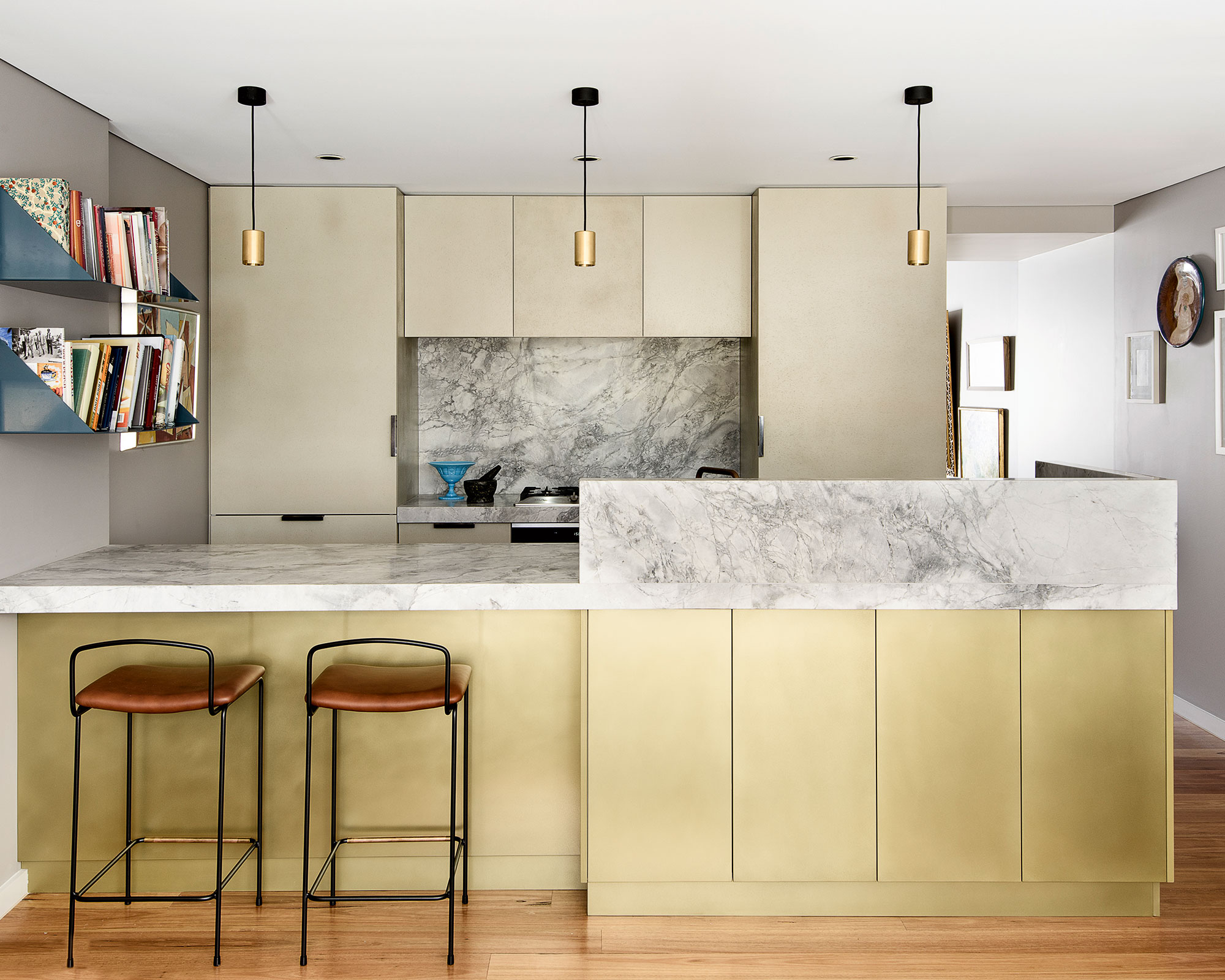
'Granite is known for its robustness and durability,' explains Nina Lichtenstein. 'It's a natural stone that can withstand heat and resist scratches when properly sealed – making it ideal for kitchens and bathroom countertops alike. However, it's essential to avoid dropping heavy items onto your granite surfaces, as they can easily chip or crack.'
'Granite is an incredibly hard-wearing material and has low porosity,' agrees Paul Dore. 'This makes it a popular choice for spaces where it is likely to get wet. With a Mohs Hardness Scale rating of between 6 and 6.5, it can also withstand a lot of the day-to-day wear that occurs in busy households.'
Cleaning Granite Countertops
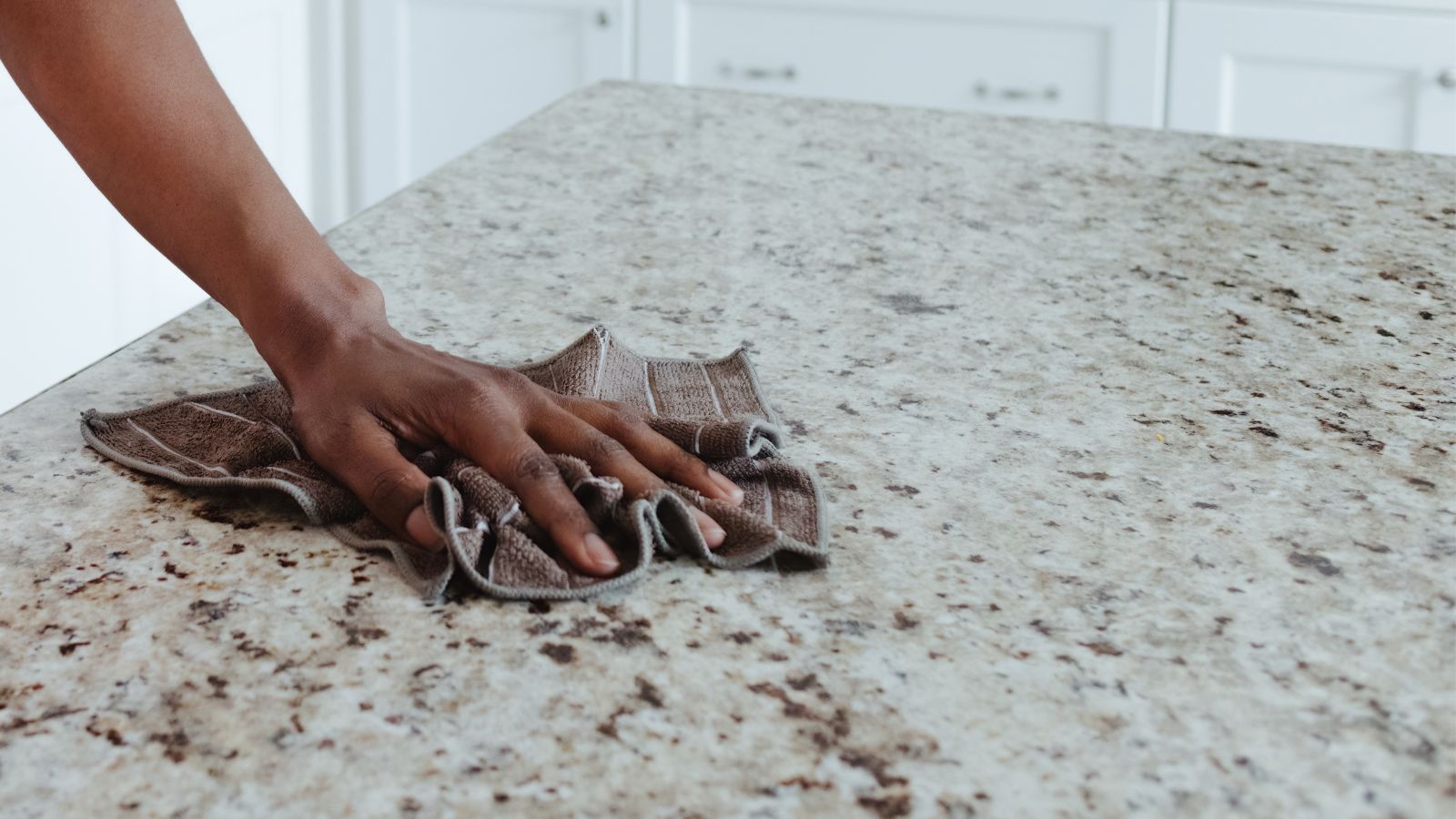
'As with all natural stone work surfaces, care does need to be taken with granite, but it is easier to maintain than some other stones,' explains Paul Dore. 'For example, granite is not a calcite-based stone and is not generally acid-sensitive – something that can be an issue with other stones, particularly when used in kitchens. That being said, it’s important people know how to look after granite.'
Clean water and mild detergent can be used for cleaning granite countertops on a day-to-day basis. However, for tougher stains kitchen experts recommend investing in products specifically designed for natural stone surfaces, as opposed to general and multi-surface cleaners that contain chemicals that can dull and etch the surface polish. Granite Gold Daily Cleaner, available from Walmart, and StoneTech Revitalizer from Amazon are both popular choices.
'As with all natural stone surfaces, spills should be wiped up as soon as possible, and the use of trivets and chopping boards is recommended,' adds Paul Dore. 'Your granite fabricator should treat your surfaces with a single application sealant which will protect them from spillages for around 15 years, by which time you’re likely to be remodeling your kitchen.'
Granite Cleaning Kit | $11.80 at Amazon
This granite cleaning set from Amazon comes with two super soft clothes ideal for buffing and cleaning surfaces in your kitchen.
Countertop Comparison
Granite is a beautiful and extremely durable kitchen countertop material. But how does it stack up against other popular choices?
Granite vs Ceramic Countertops:
'The newest counter material on the market is ceramic, which has been making its way to the forefront over the past several years,' says Kelly Taylor, interior designer. 'Like granite, ceramic slabs are highly heat resistant, super durable, completely stain resistant, and really one of the best possible kitchen countertops for cooking. That said, manufacturers are still working on the look of the ceramics, so there are a lot fewer options to choose from in contrast to natural stone.'
Granite vs Quartz Countertops
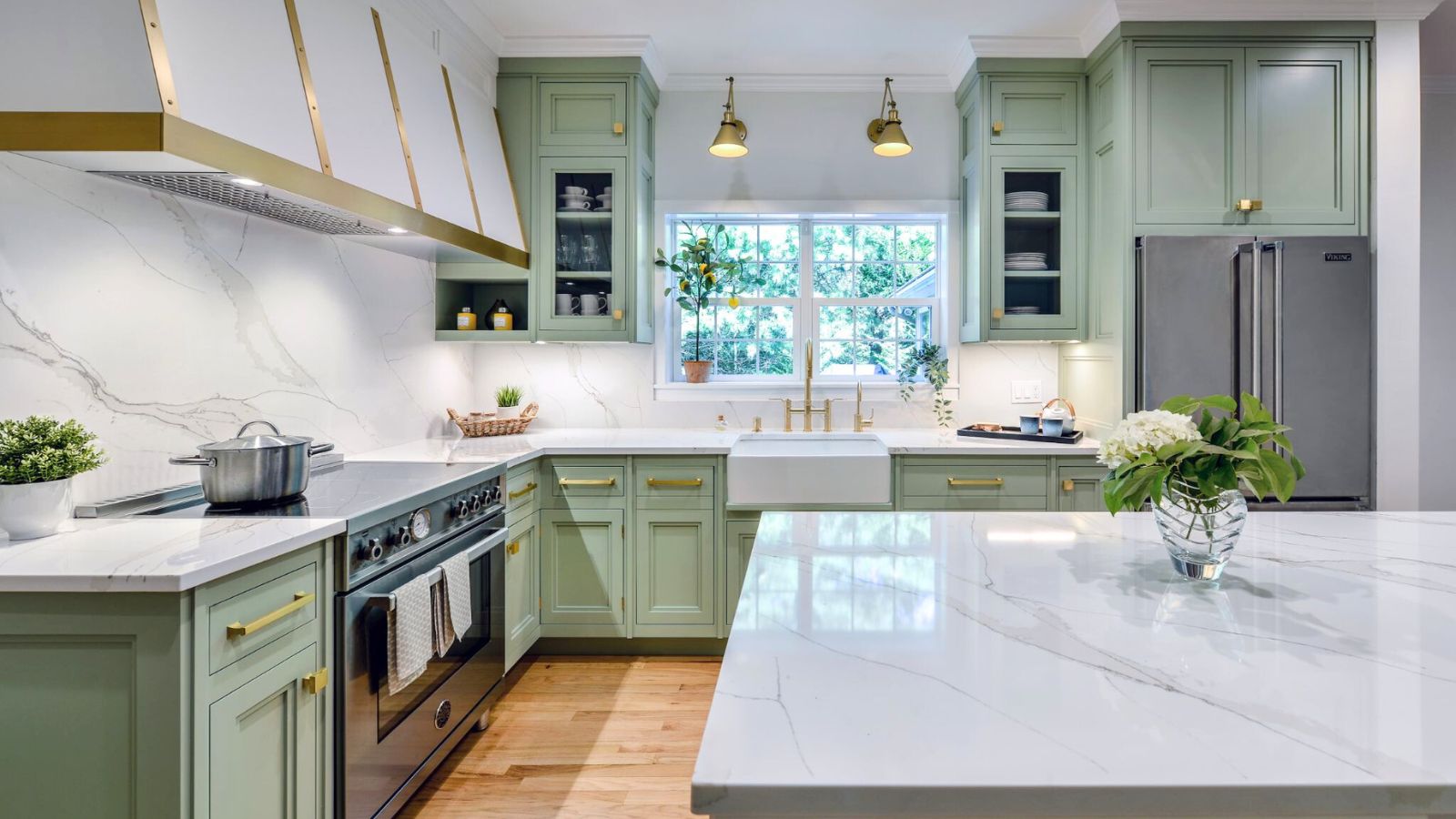
'Quartz countertops have grown in popularity over the years, taking over granite as the go-to choice for kitchen worktops,' explains Paul Dore from County Stone. 'However, contrary to popular belief, quartz is a man-made stone. As such, these countertops come in a range of colors and finishes, which has contributed to its popularity.' However, if natural materials and finishes are more aligned with your home aesthetic, you may find the unique patina and naturally occurring finish of granite more appealing.
Quartzite is also another popular choice and has increased in popularity in the last couple of years. However, quartzite can be very expensive – more so than marble – and has unpredictable porosity. That being said, quartzite is harder than granite, rated 7 on the Mohs Hardness Scale, making it particularly effective in kitchens.
Granite vs Laminate Countertops
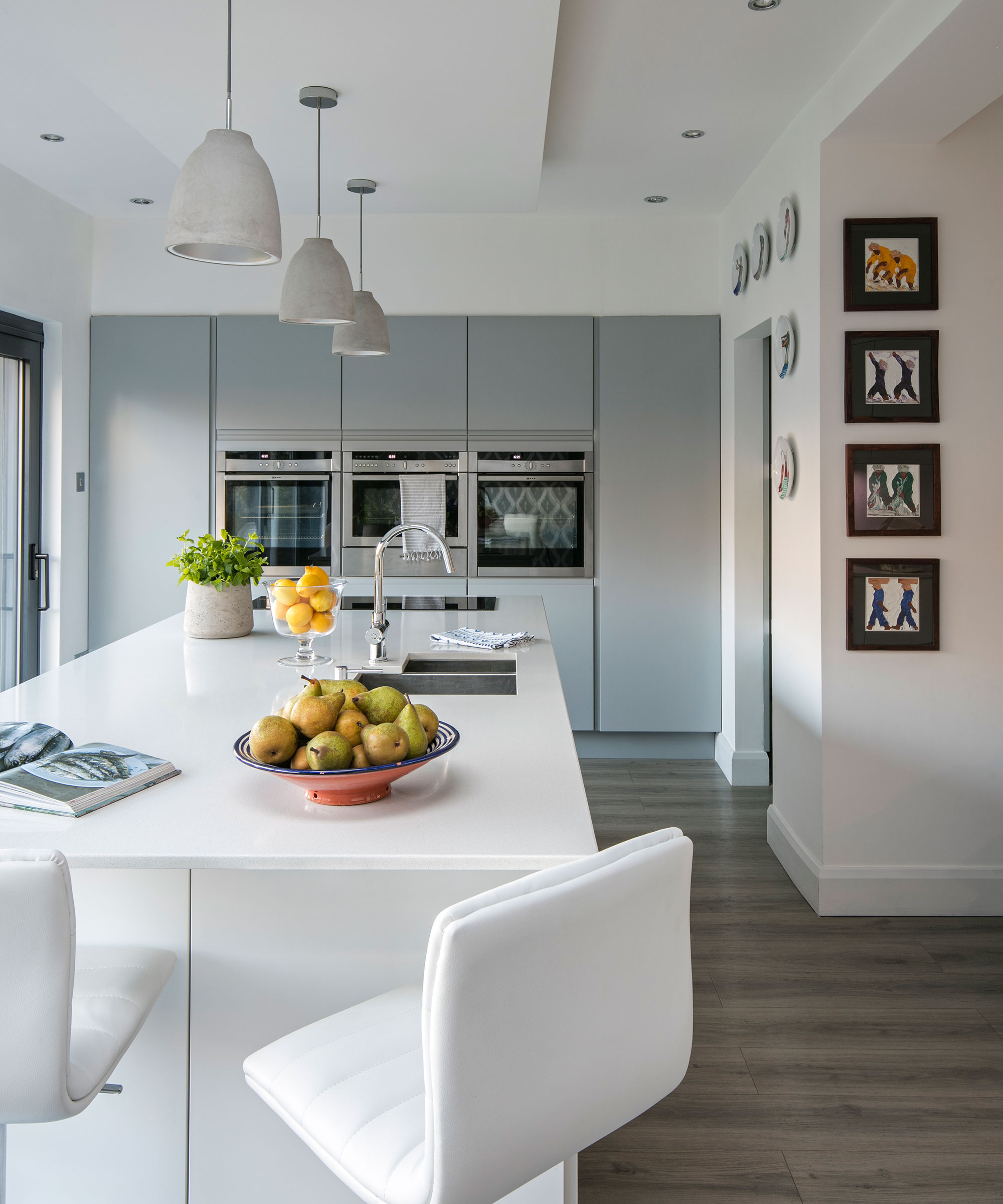
'Laminate has always been a popular choice for those renovating on a budget,' says Paul Dore. 'They have come a long way over the last decade and now come in a range of colors, textures, and finishes, often emulating stone from a distance. However, laminate worktops may require less maintenance than stone on a day-to-day basis, but they are much less durable. They can be prone to chipping, peeling, and fading, meaning they often don't last more than a few years. So, over the space of 20 years, you may end up spending more on replacing laminate worktops than opting for granite in the first place.'
Deciding on the best countertop materials for a kitchen will ultimately come down to a range of factors: aesthetics, cost, durability, and ease of maintenance. However, the deciding factor will no doubt be your home aesthetic and what countertop material calls to you on a personal level.

Gabriella is a freelance contributor for Homes & Gardens. She is a DIY enthusiast and a lover of all things interior design, often found antiquing or browsing the aisles of her local hardware store. She has a particular passion for historic buildings and is in the process of renovating a Victorian coachhouse in the countryside.
For much of the past decade, Gabriella has worked as a freelance writer, crafting copy for national publications and renowned homeware brands. Most recently, she worked for Homebuilding & Renovating Magazine and is the former Head of Solved at Homes & Gardens, focusing on case studies for the magazine and website, as well as writing features about issues surrounding historic and listed building projects.
